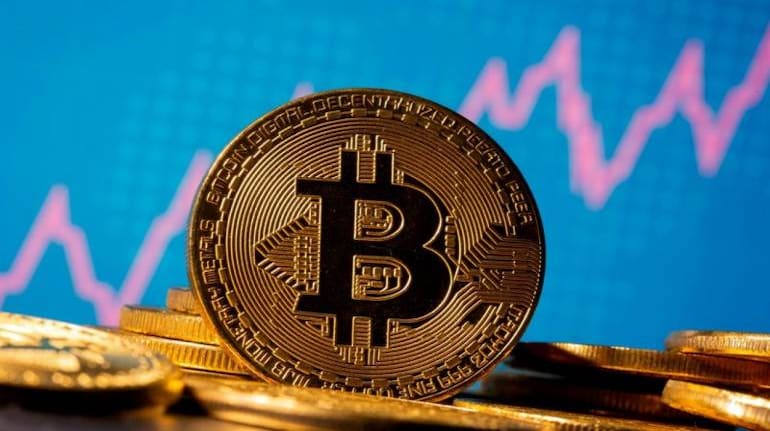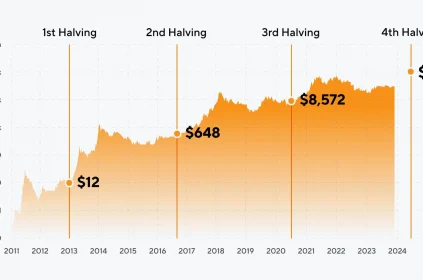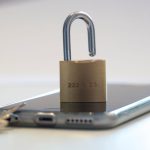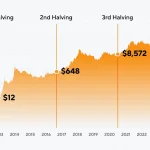…CBN’s Crackdown on cryptocurrency legal or illegal?
…CBN Punishing Cryptocurrency Traders For Non-Existent Offense
…Singer, Davido Launches own cryptocurrency token, ECHOKE
…Does the CBN have the legal right to crackdown on cryptocurrency in Nigeria?
…CBN crackdown forces crypto traders, entities, companies to close shop, adopt P2P
…Crypto body sues CBN, says apex bank lacks banning powers
…Says only NASS can make laws banning crypto trading in Nigeria
Industry players want to know if CBN’s crackdown on cryptocurrency is legal or illegal.
Is it an offense, therefore, to buy and own cryptocurrency in Nigeria?
Does the Nigerian constitution recognize the buying and or owning of cryptocurrency as a crime?
Can CBN make laws banning cryptocurrency trading in Nigeria without NASS’ Approval?
What does the law say?
These are questions which many people are still asking and seeking answers right now.
But in this news report, we bring to you answers to these questions from the lens of the law.
Background:
Recently, and particularly on February 5, the Central Bank of Nigeria, CBN, launched crackdown on cryptocurrency trading in Nigeria.
It directed Deposit Money Banks to desist from transacting with entities dealing in cryptocurrencies.
Although the apex bank even launched the eNaira which is a digital currency, it quickly corrected that eNaira is not cryptocurrency.
READ: Nigeria’s Digital Currency, eNaira Is Not Cryptocurrency: Read The Difference
Meanwhile, Cryptocurrency has become a steady source of income for, especially the Nigerian youths.
Following massive poverty, lack of employment and the continuous hardship, many youths turned to cryptocurrency for respite.
Therefore, cryptocurrency provided hope for, especially the Gen Zs and Millennials with steady source of income.
Also, in 2020, cryptocurrency transactions in Nigeria hit more than $400m.
Consequently, Nigeria ranked third in the world for countries with highest Bitcoin trading volume.
Meanwhile, cryptocurrency trading volume has continued to rise year-on-year, with increase of 25% in June, 2021.
Also, the country has continued to witness further growth from cryptocurrency exchange startups like Busha.
For instance, Busha which helps users buy, sell, and manage their cryptocurrency portfolio has raised $4.2 million seed funding.
The crypto exchange startup raised the fund while even operating from it’s market position in Nigeria.
The fund is also for Busha to recruit more staff members and expand into other African markets.
Busha has over 100, 000 downloads on play store, indicating wide adoption even in a country banning crypto trading.
Enters Davido’s $Echoke cryptocurrency:
Similarly, singer, David Adeleke, popularly called Davido, has also launched a fan token, the Echoke Social Token.
He said the token gives “power” to his millions of fans.
Davido recently announced the launch of his fan token, the Echoke Social Token, via his Instagram account.
Davido said the token eliminates unnecessary third parties as well as help him relate directly with his fans.
He partnered with Bitsika Africa’s new crypto company, Omegoat for his token.
He said, “Happy to finally announce this thing we’ve been working on for a while. It’s the ‘Echoke Social Token’.
“Everyday, millions of fans create value that is captured by a few execs in a boardroom. Not any more. We’re giving the power back to the fans.”
The singer said ECHOKE token holders will get free access to giveaways, NFTs, backstage passes and jobs.
He also said the holders will get access to festivals, exclusive merchandise, media, and hospitality benefits.
Although the singer said he would not be selling the token but giving it away, the CBN’s crackdown is still an obstacle.
Would the CBN go after Davido’s ECHOKE token?
Would CBN block Davido’s accounts for dealing in crypto?
The CBN’s directive is only against anybody trading in crypto in Nigeria and not merely anyone owning crypto.
Perhaps, that informs the plan by Davido to gift out his ECHOKE token instead of selling it.
Meanwhile, the CBN has continued to go after accounts trading or dealing in cryptocurrency and it is not relenting.
It gets tougher:
Also, the regulator has mandated Deposit Money Banks to close all accounts suspected of trading or dealing in cryptocurrency.
Adding to the nightmares, the CBN has continued to clampdown on violators of the order.
Similarly, deposit money banks have also joined forces with anti-graft agencies to enforce compliance with CBN’s directive.
Recently, KUDA Bank handed over to the Economic and Financial Crimes Commission, EFCC, those it believed were dealing in crypto.
So, the question remains, does the CBN have the right to ban cryptocurrency trading?
To answer this, industry players are divided as to the legality of the CBN’s crackdown on cryptocurrency.
While proponents argue that the apex bank has the right to ban cryptocurrency trading, others disagree.
Nevertheless, the ban has continued to rob the country of necessary investments and developments.
Impact of CBN’s cryptocurrency ban:
CBN’s crackdown on cryptocurrency traders and companies has forced some cryptocurrency companies to close shops and exiting Nigeria.
One of such startups is Patricia Technologies Ltd.
Others are Bamboo Systems Technology Limited, Bamboo Systems Technology Limited OPNS, Chaka Technologies Limited, CTL/Business Expenses, and Trove Technologies Limited.
Patricia, a cryptocurrency exchange company has long exited Nigeria and relocated to Estonia.
The clampdown in Nigeria nearly ruined its business, the company revealed in a statement.
A court in Nigeria had ordered the closure of two of the company’s accounts for trading in crypto.
The court had also ruled that the company exited Nigeria, which it did.
Similarly, the CBN had also blocked the account of another cryptocurrency platform, RiseVest.
RiseVest allows Nigerians, especially young investors, to invest in US stocks.
Also, social payment app for cryptocurrency and fiat, Kurepay is another company almost on the run.
The cryptocurrency startup said in a recent statement that it would halt operations in Nigeria in 2022.
It revealed that it would limit its services to only Over-the-Counter (OTP) and crypto consulting services.
CEO of Kurepay, Abikure Tega described CBN’s cryptocurrency crackdown as horrible year for cryptocurrency.
Similarly, the ban on cryptocurrency trading has forced many young Nigerians to adopt other means of doing crypto.
CBN’s ban pushing Nigerians into risk:
By targeting cryptocurrency trading and exchange platforms, CBN is exposing Nigerians to risker ways of doing crypto.
For instance, following the ban, many young investors embraced Peer-to-Peer (P2P) method to bypass CBN’s ban.
Also, others have adopted further less informal and less secure P2P to continue trading in crypto.
Meanwhile, sourcing for P2P seller or buyer is also difficult and this has encouraged fraudulent individuals to spring up.
Other less secure alternatives are bitcoin vouchers and using informal P2P forum.
Also, while the value of the Naira continues to devalue, many Nigerians have embraced stablecoins as an alternative savings tool to evade the Naira devaluations.
Although Nigerians are looking for ways around the ban, many have fallen victims to scams.
Also, others have lost access to their crypto wallets.
Similarly, others have lost their savings for investing a lot in crypto-assets that didn’t have any prospects of success.
CBN maintains ground:
Meanwhile, since the beginning of November, 2021, the CBN intensified its crackdown on cryptocurrency.
The apex bank is now targeting entities and individuals that provide P2P platforms and services for cryptocurrency buying and selling.
What the law says:
In a recent ruling, a federal high court sitting in Abuja, ruled that it is not illegal to trade in cryptocurrency in Nigeria.
It ruled in a suit involving the CBN and RiseVest.
The lead judge, Taiwo O. Taiwo, ruled that CBN failed to provide any law showing it is illegal to deal in cryptocurrency in Nigeria.
He said the CBN could not rely on a circular to freeze the bank account of a company.
The judge, among others, held that although the CBN has the power to investigate any infraction, the infraction must relate to BOFIA or any other enactment administered by the regulator.
Also speaking with Techuncode, legal practitioner, Chima D. Ihekaire of Kanu G. Agabi SAN & Associates, says the CBN has no such rights to ban cryptocurrency.
According to him, “Simple answer is NO. There is no law permitting CBN so to act.”
He said, “Last month, a federal High Court sitting in Abuja delivered a judgment ordering all banks which acted on the order to unfreeze the accounts.”
He however agrees that the CBN has the right to launch digital currency in the country.
“Yes. It should not be by way of a mere notice from CBN.”
Meanwhile, Blockchain Industry Coordinating Committee of Nigeria (BICCON), a coalition of Nigeria’s foremost cryptocurrency and blockchain advocacy groups, says CBN is wrong.
BICCON has urged Nigerians to sue the CBN and any bank banning cryptocurrency trading in Nigeria.
The group said CBN is encroaching on the law-making powers of the legislature.
According to it, “…there is currently no legislation by the National Assembly criminalizing or illegalizing trade in cryptocurrency in Nigeria.”
The group said thus:
“We consider questionable the actions of deposit money banks (DMBs), nonbank financial institutions (NBFIs), and other financial institutions (OFIs) blocking, closing, and/or freezing the bank accounts of individuals and entities by the mere fact that these individuals and entities are involved in cryptocurrency trading or cryptocurrency-related transactions without more. It is not supported under the current laws of the Federal Republic of Nigeria.”
Defense in favour of CBN:
The CBN has the constitutional right to create and introduce legal tender in the country.
It also has the sole right and responsibility to tell Nigerians which currency to use as legal tender or not.
The apex bank has the autonomous powers to do so.
Therefore, as an autonomous entity in Nigeria, CBN also launched the digital currency, eNaira.
These are the defenses by proponents supporting CBN’s stance on the ban.
So, does the Central Bank have the constitutional/legal right to place a ban on crypto trading in Nigeria?
“The answer is yes,” says another Legal Practitioner with Kanu Agabi SAN & Associates, Christian Ededhor Esq.
He noted as follows:
“The Central Bank, as one of its mandates as contained in the Central Bank of Nigeria Act 2007 (as amended), is to ensure monetary and price stability; issue legal tender currency in Nigeria and promote a sound financial system in Nigeria amongst other objectives. This is particularly provided for in Section 2 of the Act.
“By Section 17 of the CBN Act, the Central Bank of Nigeria is the only institution with the sole right of issuing notes and coins. Neither the Federal, State nor Local Government can so do, talk less of private individuals.
Also, he added saying “It also includes powers to exclude any or all other currencies from usage within Nigeria.
“By Section 32 of the Act, CBN has been granted Incidental Powers, wide enough and covering legal tender as Crypto currency as far as the Nigerian legal and economic space is concerned.”
He also cited BOFIA as another legal document backing CBN’s stance.
“Another Statute giving the Central Bank powers is the Banks and Other Financial Institution Act 2020 (as amended) (BOFIA).
“By this Act, the power of the Central Bank does not only include making regulations at the banking and financial practices but also supervision of all banking activities.
“It therefore was within its legal frame that the Central Bank placed a restriction on the crypto currency, notwithstanding the fact that it may have some political undertone and the fact that many economist and analyst believe it was not a wise decision.
Speaking on whether the CBN requires approval from the National Assembly to act, Barrister Christian Ededhor said as follows:
“The Central Bank has the power to launch any legal tender as eNaira, pursuant to the provisions of the CBN Act and BOFIA as earlier stated.
“This power is no longer subject to the National Assembly unless the various enabling laws are amended to so permit.
“But as of today, both the regulatory and enabling powers regarding the operation of eNaira as a legal tender resides with the CBN.
Corroborating this, An abuja based senior lawyer, Santos Obumneme Enejah Esq. said the CBN has the legal backing to ban cryptocurrency trading in Nigeria.
He equally cited the BOFIA as a valid legal statute for the CBN to so act.
According to him, the CBN is the sole body authorised by law to oversee the introduction, regulation and decisions concerning any fiat usage in Nigeria.
Implications:
Although there is no provision in the constitution that says cryptocurrency trading is a crime.
However, as long as cryptocurrency is used to trade in Nigeria, the CBN has the autonomy to either decide on its usage in Nigeria.
This is because the CBN is in-charge of issuing Legal tender, as enshrined in the constitution and the BOFIA.
It also has the legal backing in providing the modalities for any fiat’s usage in Nigeria.
Meanwhile, CBN’s ban is chasing away investments coming into the country.
Likewise, the ban robs the country of the needed development it requires.
Similarly, the ban is exposing more young Nigerians to riskier alternatives of doing crypto.
Also, deposit money banks are losing because younger investors are removing their funds from banks to store on crypto wallets.
However, the difference would only be a fraction, since older investors still have stronger faith in the traditional banks than on digital wallets.
Meanwhile, investors and the world continue to see how governments of the world relate with cryptocurrency in general.
Found this interesting? Share!























 and then
and then